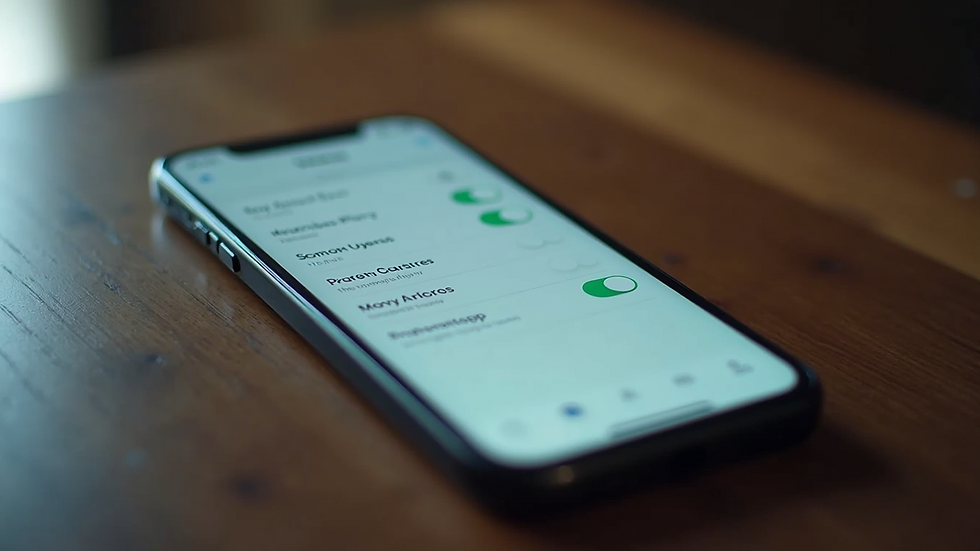How to Parent in the Digital Age
- Susie Robbins

- Sep 20, 2025
- 3 min read
Parenting today is unlike any other time in history. The digital age has brought incredible opportunities for learning and connection but also new challenges that can overwhelm even the most seasoned parents. From managing screen time to understanding online safety, parents must adapt quickly to keep their children safe and healthy.
Key challenges parents face include:
Setting appropriate screen time limits
Monitoring online activity without invading privacy
Teaching children about digital etiquette and safety
Managing the impact of social media on mental health
Knowing when and how to give your child a mobile phone

Practical Tips for Effective Parenting Support in the Digital Age
To successfully navigate these challenges, it’s important to manage expectations and create intentional boundaries. Here are some recommendations that can make a real difference:
Create a Family Media Plan
Develop a clear plan that outlines when and how devices can be used. Include rules about homework, social media, and bedtime screen limits. This plan should be flexible and reviewed regularly as children grow. Doing this collaboratively (if your children are ready and able to do this) gives them agency and creates more of a buy-in.
Encourage Open Communication
Talk openly with your children about their online experiences. Ask about how they want to spend their time online be it connecting with friends, listening to music, learning from podcasts or gaming. Have ongoing, open conversation about what is and not acceptable behaviour - much as you would about off-line behaviour.
Lock those devices DOWN!
Many devices and apps offer parental control features. Use them. You can use them to ensure that no online chat is available, or any communications with another user has been blocked, unless they have been previously approved by you. Combine controls with education and conversation.
Have protected screen-free times as part of your daily routine.
For example, no devices at the table/in bedrooms. Children learn by example. Show them how to use technology responsibly by limiting your own screen time and prioritising face-to-face interactions.
Make it part of a menu - not just the main
Screen time is a great and beneficial way to spend your downtime, provided it doesn't prevent you from doing other things. Allow screen-time as a part of a menu of activities: encourage hobbies, sports, and family outings that do not involve screens. This helps children develop social skills and reduces dependence on digital devices.
Don't shirk parental responsibility
Setting the parental controls is only one element to parenting in the digital age - you need to have ongoing conversations with your family to ensure they're using devices safely. Technology evolves rapidly - it's your responsibility to stay updated on new apps, games, and social media platforms to understand what your children are exposed to.
By applying these tips, parents can create a supportive environment that fosters healthy digital habits and reduces stress.

Navigating parenting challenges in today’s digital world requires patience, knowledge, and support. By embracing practical strategies, utilising available resources, and building a strong support network, parents can foster a safe and nurturing environment for their children to thrive. The journey may be complex, but with the right tools and community, it becomes a rewarding experience for the whole family.
I highly recommend that you read the following books about this topic that are based on proper research and provide sensible and measured advice:
Dr Martha Deiros Collado 'The Smart Phone Solution'
Pete Etchells 'Unlocked: The Real Science of Screen Time (and how to spend it better)
Catherine Knibbs 'Tech-Smart Parenting: How to Keep Your Kids Happy and Safe Online




Comments